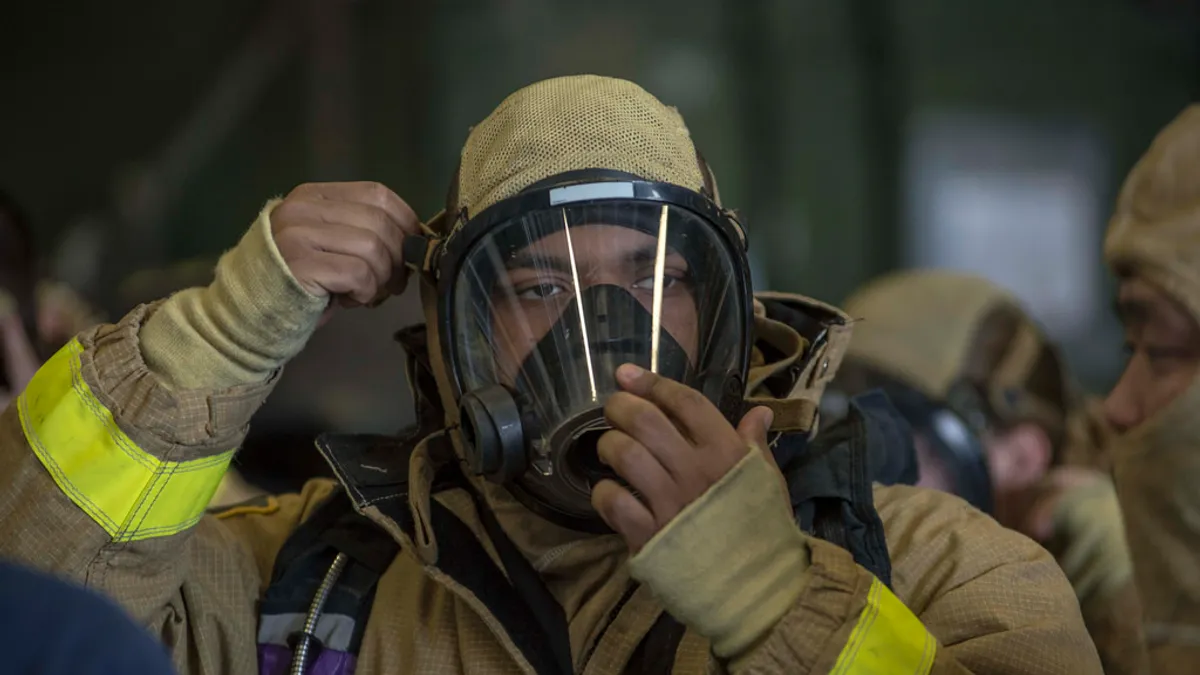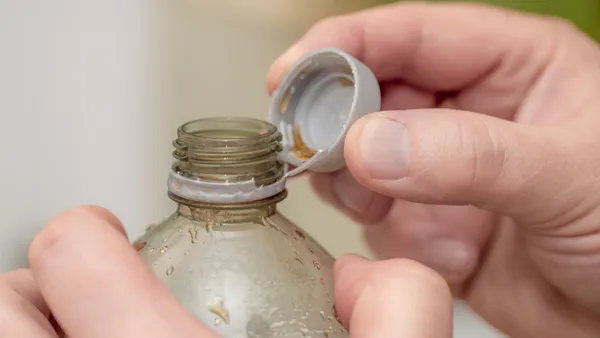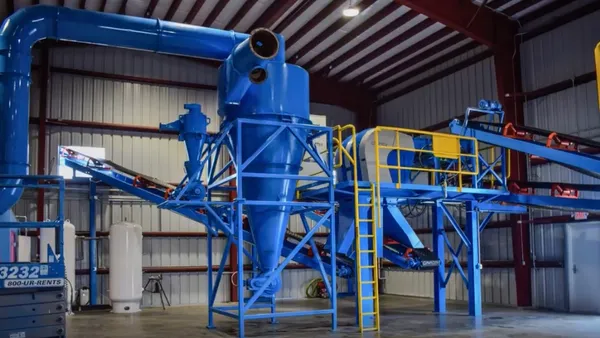Dive Brief:
- During the early hours of Oct. 28, a large fire was reported at a Seattle Public Utilities transfer station. The smoke obstructed traffic visibility in the area and the facility temporarily closed, as reported by KIRO. Information on the fire's cause has not been released.
- A large fire was also reported at Piranha Mobile Shredding and Recycling in Evansville, IN early on the morning of Oct. 28, as reported by The Journal Gazette. The facility contained large bales of shredded paper and the cause of the fire has also not been released.
- In the afternoon of Oct. 28, a large fire was also reported at a cardboard recycling facility in Commerce, CA, with unknown causes, as reported by KTLA. Location information and aerial images confirmed that the facility is Golden State Fibres Recycling.
Dive Insight:
The fact that these three facilities experienced large fires within hours of each other in different parts of the country highlights the alarming regularity of such incidents. Fires at waste and recycling facilities are seen as so common that no centralized list or tracking systems seems to exist for them in the U.S. Fire Rover, a company that develops thermal imaging equipment to detect fires, compiled data of at least 150 of these fires occurring in North America between February and July of this year and estimates as many as 1,500 could be happening every year.
In the U.K., the Chief Fire Officers’ Association (CFOA) more closely tracks these types of fires and has signed a memorandum of understanding with the Environment Agency to work on prevention. The CFOA has also worked with industry trade associations to provide guidance on safe material storage practices, prevention measures and suppression systems. Overheated piles of scrap metal, hazardous items sent to facilities by customers and failed prevention systems are all issues in the U.S. but there hasn't been a similarly visible national focus.
These fires pose safety risks to employees and the public, cost operators money and destroy valuable materials. Taking the necessary to steps to limit or avoid these incidents, which are often preventable, is in everyone's best interest.













